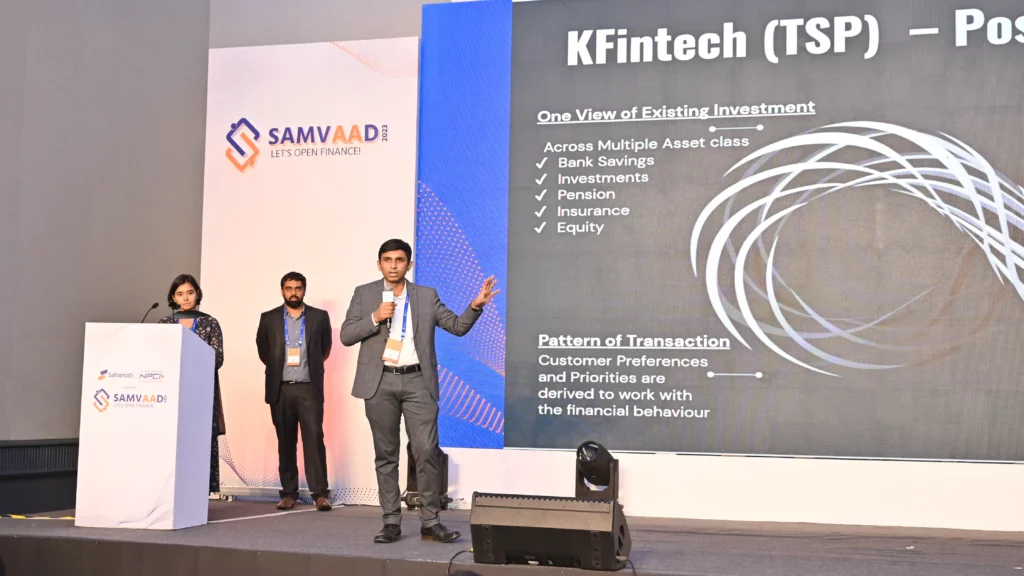A Balanced Diet: Healthy Wealth Management with AA
Dezerv | OneMoney AA | KFin Technologies
One major issue in wealth management is the discovery of held-away accounts in mutual funds, banks, bonds, insurance, pension, depositories, etc. Account Aggregators enable not just the discovery of the accounts but also the delivery of data to FIUs instantaneously and in a standard format across FIPs. Similarly, monitoring portfolio performance to make timely rebalancing decisions are cumbersome without AAs. Thus, AAs solve a crucial pain point for the wealth management industry through
| Discovering different financial accounts | Access to held-away portfolios | Recurring consent | Standard data format |
Actionable Data
Account Aggregators give users and businesses a snapshot of financial data across multiple financial data types. This functionality allows wealth managers to view financial holdings holistically across multiple classes, such as bank savings, investments, pension, insurance, and equity. Translating this aggregated, unstructured data into actionable data is imperative to make sense and derive insights from it. It is essential for financial decision-making, especially in the case of wealth management.
The ability to derive patterns from this data is paramount in wealth management. By analyzing the data, customer preferences, and priorities can be identified, allowing wealth managers to tailor their financial strategies to match individual financial behaviors. This personalized approach is the cornerstone of optimal investment solutions aligning with each client’s unique financial DNA.
Integrating a sophisticated AI engine is highly powerful to achieve customization and precision. Such an AI engine would aid wealth managers in generating the best possible investment recommendations based on their client’s specific requirements and risk tolerances. This also enables wealth managers to ramp up the business scale and enhance the efficiency of operations.

Wealth Monitoring Use Case
The recurring fetch of the Account Aggregator (AA) framework enables seamless monitoring of investments by wealth managers. The system can continuously track the performance of various investments and assets, identifying any deviations from the desired portfolio allocation. As a result, the wealth manager receives timely alerts for rebalancing, ensuring that the client’s portfolio remains aligned with their financial objectives and risk appetite.
It conducts thorough reviews of the customer portfolio regularly. This assessment aims to identify any potential red flags within the mutual funds held by the user. By promptly detecting issues, investors can take timely corrective actions, minimizing risks and maximizing returns.
It also performs a detailed analysis of the portfolio’s risk level, performance, and diversity. It carefully assesses the asset allocation and evaluates the risk exposure associated with the mutual funds in the portfolio. This evaluation allows investors to gauge the performance of their investments relative to a benchmark, providing a clear picture of how well their portfolio is performing compared to the market.
The ultimate goal of the use case is to help users create a personalized portfolio tailored to their specific financial objectives. The tool considers individual risk tolerance, financial goals, and investment preferences through a data-driven approach to develop a portfolio that aligns perfectly with each user’s unique circumstances.
MF Central served as a valuable tool to operationalize this use case. But the advent of Account Aggregators takes this to the next level. Currently, the product is limited to only mutual funds but using an account aggregator it’s operations can be extended to stocks, bonds, bank accounts, etc.
Catch the complete session recording along with the live use case demonstration here:
Related Readings
